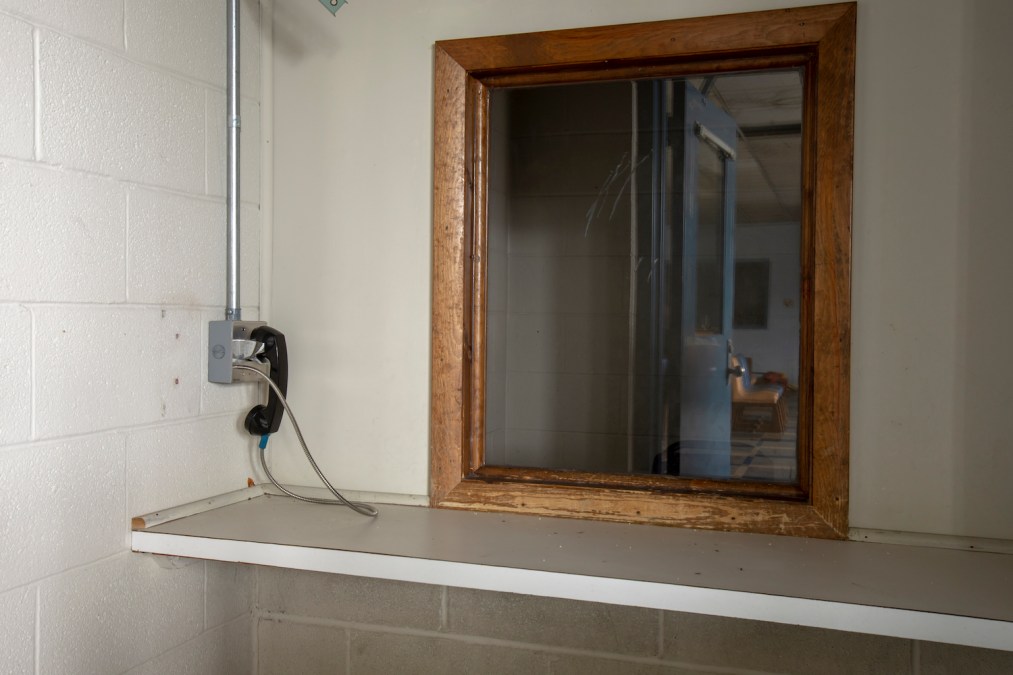FCC votes to roll back prison rate caps, boosting phone and video call costs

The Federal Communications Commission on Tuesday voted 2-1 to approve an order that will roll back caps it had set last year, nearly doubling the rates incarcerated people and their families can be charged for making phone and video calls to and from correctional facilities.
The 2024 rate caps were set by the FCC after former President Joe Biden signed the Martha Wright-Reed Just and Reasonable Communications Act into law in 2023. The law gave the FCC statutory authority to set caps on call rates for Incarcerated People’s Communication Services, which includes in-state, out-of-state and international calls. Until then, the FCC had attempted several times to impose restrictions on the call rates, but those efforts were repeatedly blocked in court.
As part of the rollback, the FCC imposed interim rate caps, raising the maximum cost of phone calls with people inside large prisons from $0.06 per minute, according to the 2024 rate caps for audio calls, to $0.10. In jails with fewer than 50 people, the new caps will allow rates to go up to $0.18 per minute, from the previous maximum range of $0.07 to $0.12 per minute. The FCC also added a $0.02 per minute fee “to account for correctional facilities expenses,” according to a commission fact sheet.
Video calls, which are are more expensive, will be capped at $0.18 per minute for large prisons and jails, up from $0.11 previously. For smaller jails, the rates will go up to anywhere from $0.19 to $0.41, depending on the institution’s size.
The FCC’s vote was along partisan lines, with Commissioner Olivia Trusty and Chair Brendan Carr, both Republicans appointed by President Donald Trump, voting to roll back the 2024 rules and increase the rate caps.
In remarks before the vote, Trusty noted that “there are tremendous public benefits when incarcerated individuals can communicate with friends and loved ones,” adding that such contact promotes rehabilitation and reduces recidivism. She also pointed out the “monopoly environment” incarcerated individuals face, as prisons normally only work with one communications provider. But Trusty claimed the 2024 rate caps “did not always strike the right balance under the new statutory framework,” adding that some prisons experienced “unintended consequences, like the loss of IPCs service in some facilities.”
Carr, who in 2023 voted in favor of rate caps, noted in remarks Tuesday that the caps left some facilities unable to recuperate some security costs.
“For example, by limiting how facilities could recover safety and security costs, some prisons or jails were forced to scale back or even stop offering calling services all together,” Carr said. “That’s not good for anyone, especially when it puts staff in public safety at risk. Today’s actions seek to correct course by taking the lessons we’ve learned and applying them to create a new framework, one that we intend to be durable, predictable and lawful.”
Worth Rises, a nonprofit that advocates for incarcerated individuals’ rights, pointed out in a statement after Tuesday’s vote that only one facility in the country lost its services due to the caps. The prison in Baxter County, Arkansas lost IPCS services this year following the county sheriff’s decision to shut down phone access, in protest of the rate caps.
FCC Commissioner Anna Gomez, a Biden-appointed Democrat, voted against the increase and called it “indefensible.”
“Today, the Commission adopts an order that gives monopoly companies facing zero competition, the authority to increase the costs for families to maintain critical connections with their loved ones in prison,” Gomez said Tuesday. “These families have no option but to pay the higher rates, regardless of whether they have enough to make rent, buy groceries or pay the electric bill, or whether they are able to work enough hours or need to get a third job if they want to stay in touch with a loved one in a correctional facility — their cousin, friend, brother, mother. They have no other option but to figure out how to pay the higher rates the commission imposes on them today.”
During a press call Monday, Bianca Tylek, executive director of Worth Rises, also stiffly criticized the vote.
“These changes are a betrayal of the families who entrusted the FCC to protect them from the notoriously predatory correctional telecom industry,” Tylek said. “Today, the Commission bent to the will of the industry that has spent decades exploiting the basic human need of incarcerated people and their families — like all people — to stay connected. The original 2024 regulations were fair, just and backed by data. The revised rules passed today fall short in all these respects and are the result of manipulation by the industry and their government partners, who are determined to protect their unjust profit margins.”
While the FCC’s approved order takes effect 120 days after it appears on the Federal Register, Chairman Carr said the interim rates will serve as a holdover until the commission builds a new rate framework that features “just and reasonable rates, ones that are consistent with the Martha Wright Reed Act.”






